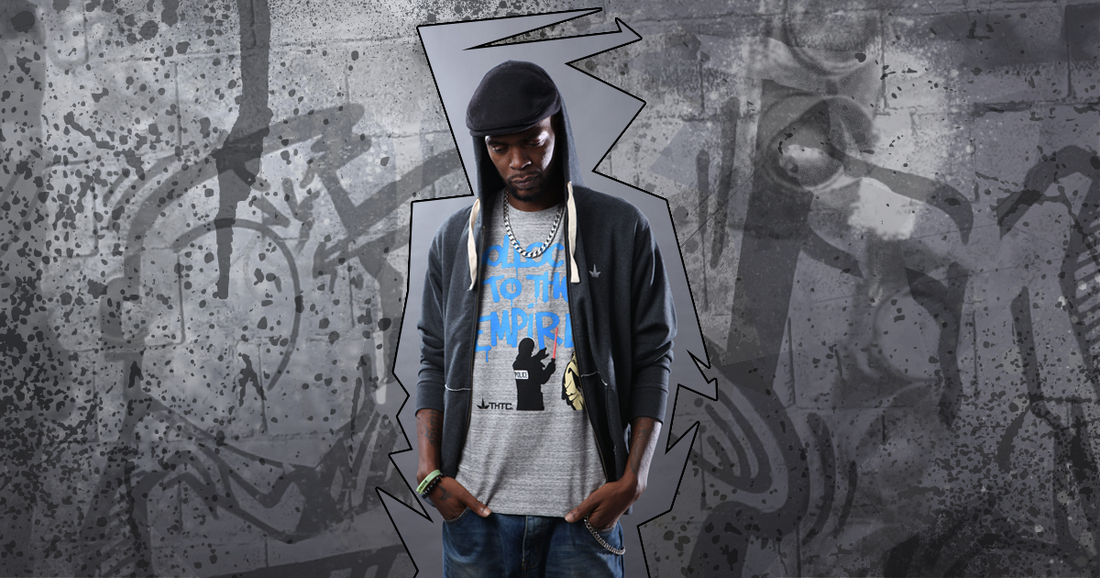
Oh god. It's already gotten to the stage of writing, where I'm defaulting to copying structure and style from Buzzfeed listicles. However, you should know me enough by now to realise I'm doing fifth columnist infiltration to promote radical thinking.
Being mindful of your consumption habits and their effect on the environment and your wider community is an excellent way to live. In fact, it might be the only way to ensure that we have a liveable world and a society that respects human dignity.
7: Virtue Signalling

There is nothing warmer and comfy than basking in your own self-righteous glow. That super soft, eco-friendly unisex organic cotton activewear hoodie you purchased with the big 'fair trade' logo on the inside label? It will definitely get you all the praises from that hot coffee-shop worker with the nose-piercing and cool tattoos. Your co-workers will be shamed into action by your ethical drip. By buying something with an ethical label, you will, in fact, single-handedly save the world.
That was sarcasm for those who don't know the THTC clothing brand. 'Consumer activism' is the industry trying to shoulder responsibility for the climate crisis onto individuals.

6: Ethical Fashion supports a better, more sustainable economy
We discussed the principles behind truly sustainable fashion in our previous blog. The Ellen McArthur foundation's 2015 report, 'A New Textiles Economy, showed that new and virgin resources constitute 97% of clothing produced. As of 2020, only 3% of global clothing production comprises recycled materials. We've not even mentioned the waste that goes to landfills, stock destruction, and pollution practised by the sector.
Fast fashion is bad for the planet and you, like fast food. A truly ethical brand that purports to make sustainable clothing consistently reports on its environmental obligations and sourcing practices. It doesn't try to greenwash over its own greed. Ethical fashion brands will at least aspire to use recycled fabrics or adopt a circular economy.
5: Reducing Surplus Value Theft
Let's say you work for a garment manufacturer in Honduras - like Gildan. They pay you $1.18 an hour - which actually happens. In an 8-hour shift, you earn $9.44. However, within those 8 hours, you'll make at least a hundred tees that'll sell for over $90 each in America.

Despite accounting for the cost of materials, equipment, and property, Gildan won't pay you anywhere near the value you've created, which is worth hundreds of dollars a day. Employers buy your labour-power from you, not the actual fruits of your labour. A worker recovers that value within the first hour of work. For the rest of your shift, you're basically working for free. This example even applies to jobs in the UK. Replace garment worker with 'pub worker', your hourly wage etc.
The extra value produced during this stolen time is known as surplus value. It's the basis of all 'profit' created in such a hierarchical system.

The awesome comrades from the Rainbow Grocery Cooperative
THTC Clothing sources its hemp from collectively-owned factories, where workers are paid a far greater share of the sale value - fair wages. We aspire to work with cooperatives worldwide and encourage workplace unionisation to fight for employee company ownership.
4. Sustainable Fashion 'reduces your carbon footprint'

Ok, this one's another misdirect.
The notion of the 'personal carbon footprint' is, in fact, a construction by big oil - namely, BP's PR firm, Ogilvy. Mark Kaufman, a former Science Editor at Mashable, wrote one of the blog site's most popular articles on climate change a few years back - the Carbon Footprint Sham. You can read it in full here - and we recommend that you do. One key quote:
British Petroleum, the second-largest non-state owned oil company in the world, with 18,700 gas and service stations worldwide, hired the public relations professionals Ogilvy & Mather to promote the slant that climate change is not the fault of an oil giant, but that of individuals. It's here that British Petroleum, or BP, first promoted and soon successfully popularised the term "carbon footprint" in the early aughts. The company unveiled its "carbon footprint calculator" in 2004 so one could assess how their normal daily life – going to work, buying food, and (gasp) travelling – is largely responsible for heating the globe.
The idea that individuals can make a difference in this context when the mode of consumption of the global economy is determined by billionaires and companies far more powerful, is a bad joke.
Oh cool, you bought a locally-made t-shirt - but how does that compare to Primark shipping in tonnes of produce from overseas, only to destroy most of it when it goes unsold?
Yes, you can be personally responsible and purchase ethically-made plastic-free garments because it's the right thing to do. Their production methods are invariably low-impact and better for the environment. But don't get on your high horse against others who aren't in a position to do so. If anyone from Ogilvy is reading this - bless you.
3. Natural eco-friendly fabrics and natural fibres are better insulators
We count most synthetic fibres as 'non-ethical' by default. Did you know that the famous fascist billionaire Koch brothers, responsible for financing, once owned the rights to the world's entire lycra supply? That's right. Anyone buying spandex until the Kochs sold it to a Chinese state-owned corporation in 2017 was effectively helping fund the American far-right. That's a chilling fact.

Many fashion companies may have talked about making t-shirts out of recycled plastic bottles. In reality, it's simply recycled PET - chemically the same PET used in bottles, yet not necessarily from the same source. rPET isn't the miracle material on which much of the fashion industry was sold. It is not compostable; it persists in the environment and creates microplastics during its production.
The cellulose structure of natural fibres traps heat effectively. Most compelling among them is, of course, hemp, which is also amazingly breathable. So yeah, this stuff will warm you up.
2. (Actual) Ethical Clothing Doesn't Use or Encourage Child Labour
Elon Musk, like many billionaires, doesn't mind having child workers in the Congolese cobalt mines that supply Tesla. However, most decent working people don't like knowingly using products that involve considerable suffering.

In the last years, child labour across the world has dramatically increased. An estimated 79 million children are in hazardous and traumatising work - primarily in the agricultural sector, Africa, and South-East Asia (Source). Certifications such as the GOTs organic standard, the Fairwear Foundation and other assorted fair trade associations require many audits to ensure members aren't exploiting vulnerable minors in their production chain.
Brands such as Adidas ASOS, Disney, Forever21, Gap, H&M and Primark are still supplied by producers utilising child labour.
THTC can honestly say that we know who made our clothes and that our entire supply chain is free from the exploitation of vulnerable minors.
1. Real ethical clothing supports small, cooperative and artisanal businesses
The economics and ownership structure of the fashion industry means that the only actual high-quality, ethical clothing producers in the west are small, artisanal outfits or those operating under a cooperative scheme. The material drivers for companies to cut corners are usually imposed from above - the ownership and executive class attempting to squeeze more profit with smaller overheads.
Our research and decades of clothing industry experience have shown us that small movers make the most significant difference. The folks who work for themselves, to serve their local communities, who produce almost on a subsistence basis, are commonly the ones who don't engage in corner-cutting, polluting practices or labour exploitation. Once you start adding investors, mortgages and loans - the pressures to continually make profit increase exponentially as your business begins to serve the interests of others.
Buying ethically means buying from a sustainable brand that has your well-being at heart and doesn't see you as a cash machine.
Final Words
Ethics are the last line of defence against the oppressive march of consumerism. Real ethics are practised, not simply preached. It's not good enough if a company broadcasts that it donates to charity x, which builds wells in the global south - when that company's business practices ensure that such communities forever rely on handouts.
And sticking to your ethos while leading a business that employs people, that may have a credit line, and that has a physical presence in a community - takes strength and resolve. I'm glad to work with someone like Gav, who has always had a solid moral compass, and the wherewithal to fight for what he believes in. Many of the other companies I've worked for in my long tenure as an 'internet dude' simply DGAF. It's all about the bottom line.
That's why we say THTC isn't just a clothing label - it's a way of thinking and being.



